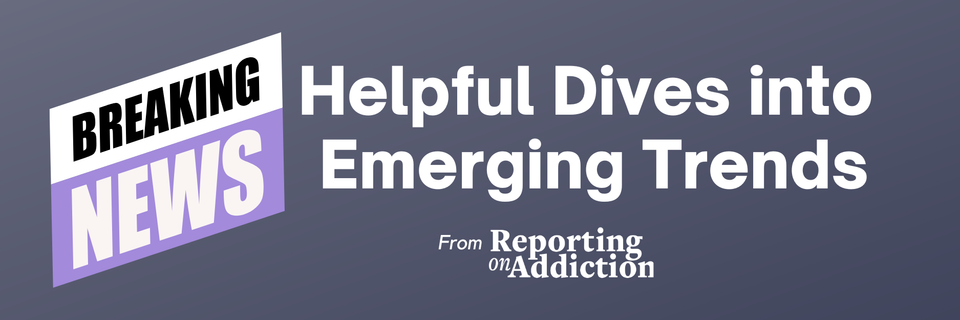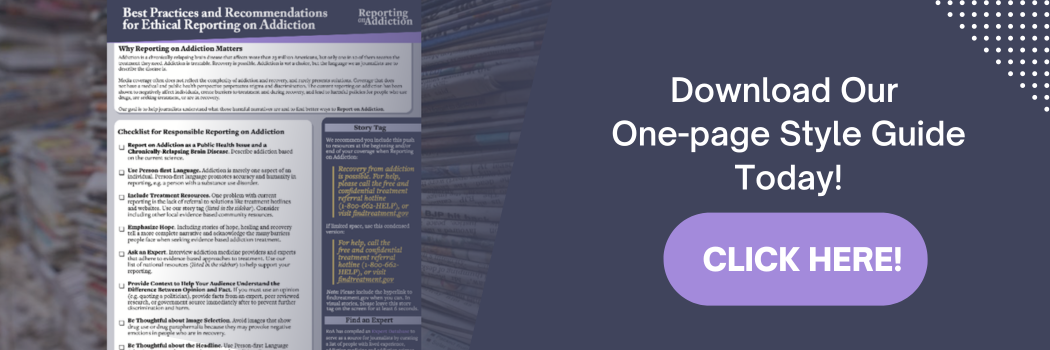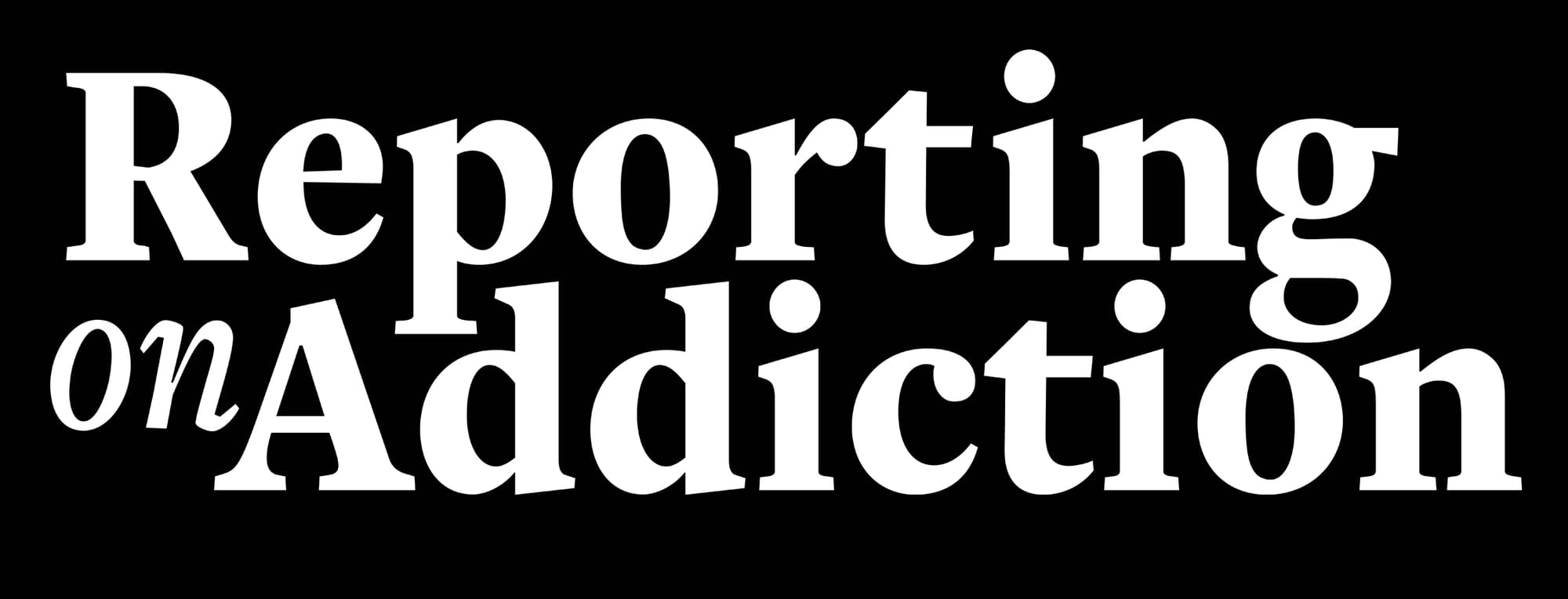"Fentanyl Syndrome"

Recently there was a reminder about why Reporting on Addiction exists and how we are uniquely situated to help reporters cover this topic with accuracy and empathy. And while we have trained more than a 100 journalists in newsrooms across the country, it’s clear when misleading narratives make it into the news that our work isn’t done. Unfortunately, that means we spend as much time responding to these headlines as preventing future ones. And that’s what we want to highlight for you today.
So what happened!?!
Earlier this month, more than a dozen national and local news outlets picked up a story about a new “fentanyl syndrome” associated with prenatal exposure to fentanyl. The stories covered the results of a small case series research article. Case series are considered the second lowest quality of evidence amongst scientific study designs - right above personal opinion or expert reports. The evidence quality is quite low because a case series doesn’t provide what we need to draw conclusions. That’s because case series tend to highlight novelties and aren’t able to test cause and effect relationships because they lack comparison groups. Case series don’t answer why those novelties are occur, only that there is something occurring.
The issue with news coverage of a case series is that there’s a lot we don’t know. But the fact that it is covered by the news implies to our audiences that this research is newsworthy – that there’s really something there! And because many readers don’t know the limitations of this type of research, covering it without providing context can lead our communities to incorrect conclusions.
When it comes to drugs, the default mode is fear and discrimination. We know that coverage like this feeds into existing narratives of “undeserving motherhood” and can legitimize punitive approaches that only drive people away from care. We know that addiction treatment works. We know that people need to feel safe when seeking care and that fear of punishment especially drives pregnant people away from services. Stories about a “fentanyl syndrome” that most experts doubt exist only reflect back our existing biases. They elicit not just fear, but also blame.
Compare this to the response to the Zika virus outbreak that was widely reported between 2015-2016. Zika is a virus transmitted by mosquitoes and, if exposed during pregnancy, causes severe birth defects. If you think back, there weren’t a bunch of people running around saying that these mothers are terrible because they got bit by mosquitoes. There was a lot of fear, but not a lot of blame. Stories that include pregnant people and drugs always resort back to blame, shame, and discrimination. This does nothing but make accessing life-saving services more difficult. It makes recovery more difficult. It makes the child's life more difficult.
Reporting on Addiction’s fundamental principles exists to help reporters do no harm. This means that reporting needs to be oriented towards nonjudgemental, non-punitive access to harm reduction, treatment and recovery supports. Any coverage that doesn’t is unethical and can result in more deaths in our communities. Yes, those are the stakes when reporting misses the mark.
But our goal here today is not to shame these news outlets either. Instead, we want to spread the word that there are resources for journalists to help them do better. Whether you are a journalist yourself, an activist, a clinician, an educator or anyone else in our community, you can help make media coverage of addiction better.
How You Can Help
Journalists
When considering covering a research article, use the hierarchy of evidence to interrogate if this is relevant to my audience. Listen to your sources. If they say it's a small study and we don't know much, they are really saying they're surprised this is getting covered. Alternatively, if it's a small sample size study and your sources don't have that kind of caution, that's a massive red flag. It’s the job of journalists to help our communities understand these basic concepts because they impact us all. Always consider the harm to people seeking harm reduction services, treatment, or in long-term recovery might face because of your reporting. Mis/disinformation in this coverage kills people. Even the most thoroughly sourced stories can harm our communities.
Experts
When sought for quotes, consider if you’re the best person for this topic, even when it's a big outlet. Staying in our lanes is important to credibility and making sure we don't harm our communities. A key role for experts is recommending other knowledgeable sources or letting a journalist know when the science just isn’t there yet. Some stories might be better off being shelved, at least for now. Even if you aren’t the best source at that moment, but you know the science is questionable or you see red flags, you do have a responsibility to share those concerns with a journalist. Educate them. Don’t criticize them. Many people are not trained in these topics. It’s important to bring valuable critique of the science and the level of coverage to the conversation. Approaching this from a science and news literacy angle can help move the conversation forward in a positive way.
Educators
This is a great topic to shape a conversation around ethics in your classroom! You can use this as a case study to interrogate failings in current coverage and how your students would handle something like this as an editor or a journalist. We’ll send more in January to help you adapt this to our existing lesson plans. If you know other educators that would be interested in reporting on addiction ethically, science/health journalism, or teaching media journalism classes - we’d love to work with them! Encourage them to apply to our annual educator training or share this email with them.
As always, if you or your newsroom needs help covering this topic or any other addiction-related story, please reach out. Reporting on Addiction has nearly 200 experts ready to help you, many of whom are in your city or state.

